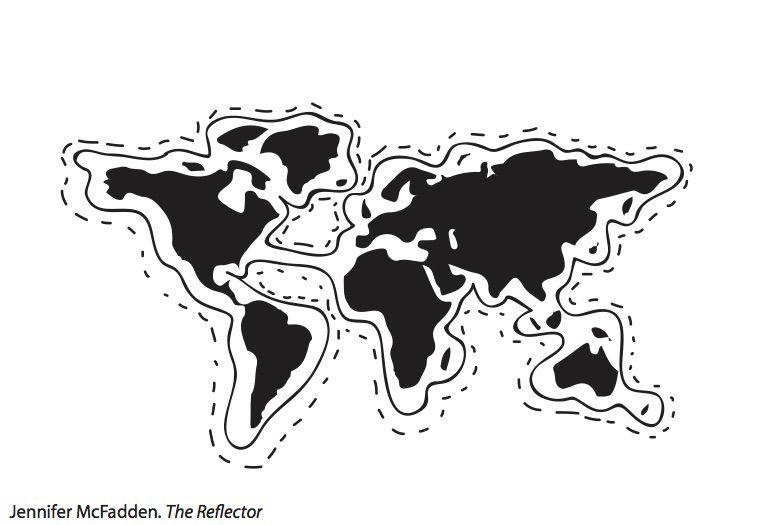The last time I looked at a world map, I thought about how I have always lived in a world where countries are separated by borders. It was a surreal moment, as it took me back to my childhood when I perceived the borders of my own country to be as unchangingly factual as the darkness of night.
We all grow up with the mindset that there are two types of people around us: natives and foreigners.
We never stop to remember that countries are created throughout the course of history and their formation is merely the aftermath of the randomness of life.
We never stop to consider how the label of foreigner or native we use for everyone around us is as random as the rolling of dice.
Worse yet, we are so engrossed with our everyday lives we fail to recognize how powerful and dangerous it is to hold these views of other people. Categorizing people as foreign or native, and treating them differently based on these labels, is one of the detrimental causes pitting the human species against one another. We have killed people over this difference in countless wars throughout history and in modern times as well.
This realm of thought always brings me back to a New York Times documentary called “My Enemy, My Brother.” The documentary tells the story of two individuals and their encounters during and after the war between Iran and Iraq, which took place only 40 years ago.
Zahed, an Iranian soldier, saves the life of Najah, an Iraqi soldier under unique circumstances.
Najah is bleeding and unable to move a muscle in an Iraqi bunker where everyone else is dead. Zahed is checking the bunker and finds Najah alive and a special human interaction is shared. This interaction leads Zahed to save Najah’s life, instead of killing or abandoning him as the enemy.
“Right away he changed into a human, not an enemy, not a killer. That’s what I was feeling. It looked like an angel coming to me in the bunker,” Najah says about the interaction.
After 25 years, life brings Zahed and Najah back together, only this time as two people who are enjoying a normal conversation in Canada. After they remember how they know each other, they become friends for life.
The power of this incredibly touching story can be summarized as a recategorization in the minds of two humans. The mental category of enemy, or “person from the other side,” changed to merely “another human,” and as a result, killing turns into caring.
Even more magical is how Najah, who is in a position of weakness, talks about his own perception of Zahed. Normally, under the circumstances, a person would believe the enemy soldier intends to harm us, and we thus have no choice but to defend ourselves physically.
Even though Najah did not have the choice to physically defend himself, the uniqueness of the circumstance brought him to look at Zahed as another human rather than an enemy, which was the realization both of them needed.
What Jesus said in Matthew 5:39 follows the same concept. He said, “But I say to you, do not resist the one who is evil. But if anyone slaps you on the right cheek, turn to him the other also.”
I think the core understanding of this verse is recognizing the quality of “turning the other cheek.” If you wish to convey anger or spite towards the person harming you, turning the other cheek will not do that. The figurative “turning the other cheek” is only possible if you are able to look at the person who has harmed you as you would look at your friends.
The story of Najah and Zahed also reveals the injustice of war, specifically for those who are put on the front lines to fight. In the case of Zahed and Najah, two humans who ended up being friends were pitted against one another by their superiors.
Another fascinating example of individuals seeing the humanity of their supposed enemies other is the Christmas Truce, which happened in 1914 between Germany and France in World War One. Soldiers from both sides ceased fire to enjoy seasonal greetings and talks for the occasion of Christmas.
Knowing all of this encourages us to avoid underestimating the power simple words have over us. Thinking of other people as “natives” or “foreigners” goes beyond innocent words. These words have given us enough reasons, throughout history, to come together as insiders and fight against the outsiders.
Ekhart Tolle, a renowned spiritual leader famous for his best selling book “The Power of Now,” calls this “human madness” and reminds his readers humans are the only species that have killed one another on such large scales.
Giving up categorizing people as native and foreign can bring a new dimension into a person’s world, and make the world as a whole a better place.





















































































